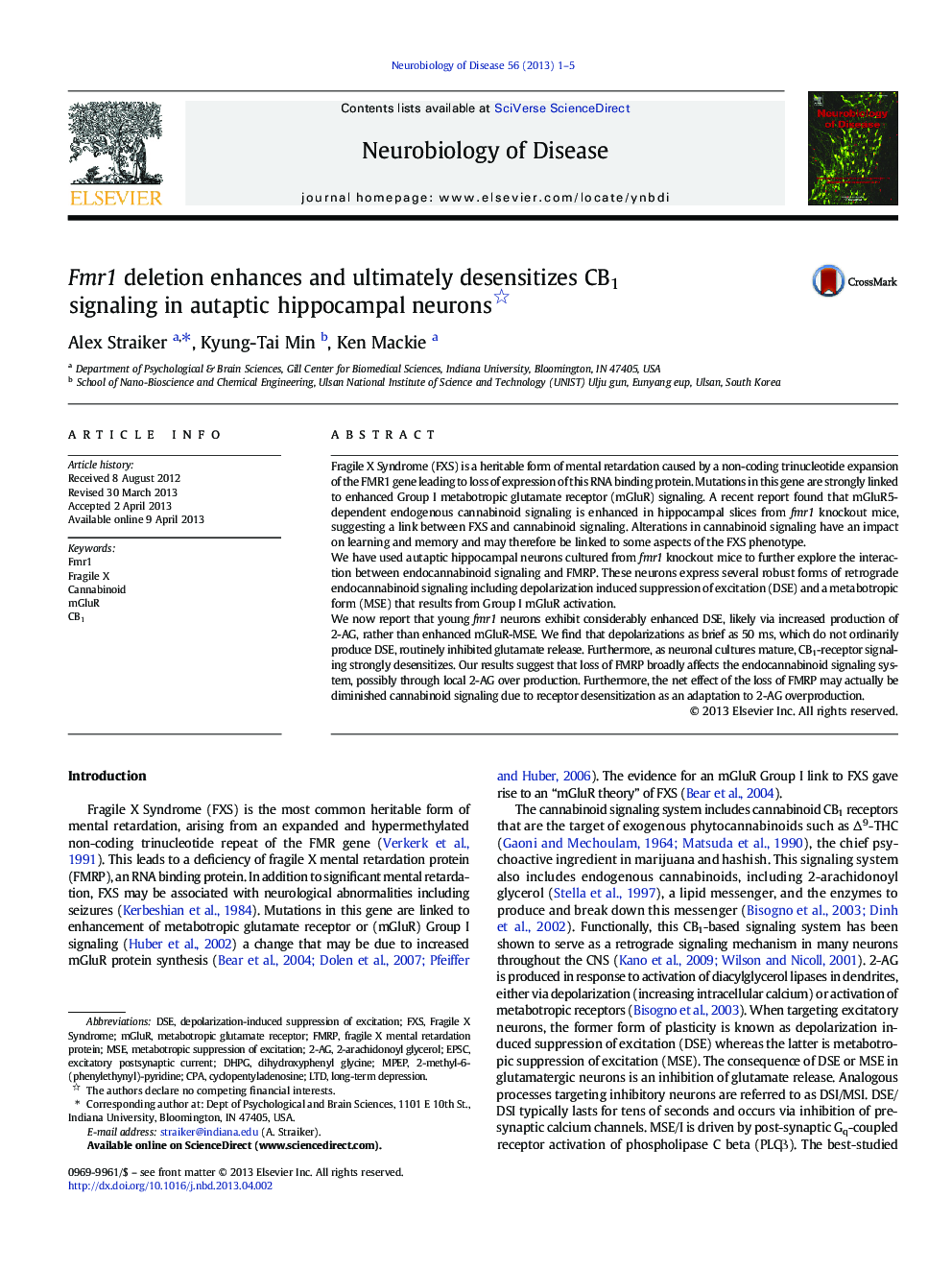| کد مقاله | کد نشریه | سال انتشار | مقاله انگلیسی | نسخه تمام متن |
|---|---|---|---|---|
| 3069396 | 1580668 | 2013 | 5 صفحه PDF | دانلود رایگان |

• In a mouse model of Fragile X Syndrome (FXS), endocannabinoid signaling is enhanced.
• However, this ultimately leads to CB1 cannabinoid receptor desensitization.
• The net impact of fmr1 deletion is diminished cannabinoid signaling.
• This is the first evidence that fmr1 deletion affects endocannabinoid-mediated DSE.
• Because mGluR signaling is unaltered in this model, this runs counter to the ‘mGluR’ model of FXS.
Fragile X Syndrome (FXS) is a heritable form of mental retardation caused by a non-coding trinucleotide expansion of the FMR1 gene leading to loss of expression of this RNA binding protein. Mutations in this gene are strongly linked to enhanced Group I metabotropic glutamate receptor (mGluR) signaling. A recent report found that mGluR5-dependent endogenous cannabinoid signaling is enhanced in hippocampal slices from fmr1 knockout mice, suggesting a link between FXS and cannabinoid signaling. Alterations in cannabinoid signaling have an impact on learning and memory and may therefore be linked to some aspects of the FXS phenotype.We have used autaptic hippocampal neurons cultured from fmr1 knockout mice to further explore the interaction between endocannabinoid signaling and FMRP. These neurons express several robust forms of retrograde endocannabinoid signaling including depolarization induced suppression of excitation (DSE) and a metabotropic form (MSE) that results from Group I mGluR activation.We now report that young fmr1 neurons exhibit considerably enhanced DSE, likely via increased production of 2-AG, rather than enhanced mGluR-MSE. We find that depolarizations as brief as 50 ms, which do not ordinarily produce DSE, routinely inhibited glutamate release. Furthermore, as neuronal cultures mature, CB1-receptor signaling strongly desensitizes. Our results suggest that loss of FMRP broadly affects the endocannabinoid signaling system, possibly through local 2-AG over production. Furthermore, the net effect of the loss of FMRP may actually be diminished cannabinoid signaling due to receptor desensitization as an adaptation to 2-AG overproduction.
Journal: Neurobiology of Disease - Volume 56, August 2013, Pages 1–5